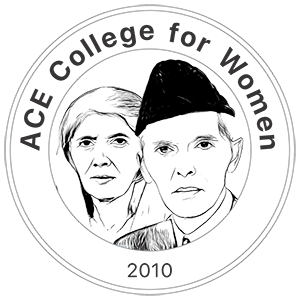Nutrigenomics: Diabetes Perspective
| Received 20 Dec, 2018 |
Accepted 22 Feb, 2019 |
Published 15 Apr, 2019 |
ABSTRACT
The research in nutrigenomics and personalized nutrition are gaining more attention in recent years because food-derived bioactive compounds significantly influence changes in the genome, epigenome, proteome and metabolome. Studies show that polyphenolic phytochemicals affect the expression of genes involved in glucose transport, insulin secretion, antioxidant effects, inflammation, vascular functions and lipid metabolism. Studies also suggest that benefits derived from bioactives may vary among individuals. Further, the biotic and abiotic factors influencing the endocrine system and microbiome population may also vary between individuals. The continued research in this direction, therefore, may contribute to the development of targeted dietary advice and the use of food customized for different individuals. Additionally, it may promote the discovery and characterization of robust nutritional bioactives that may contribute to the amelioration or prevention of metabolic diseases associated with low-grade chronic inflammation. In this article, Nutrigenomics in the context of diabetes and its modulation by various nutraceuticals is discussed.
INTRODUCTION
In the recent years, nature and nurture have known to act in synergy to cause a particular phenotype1. The presence of a particular gene or mutation merely connotes a predisposition to a particular disorder or disease. Whether, this genetic potential will eventually manifest as a disease, depends on a complex interplay between the human genome, environmental and behavioral factors2. Nutrigenomics involves the integration of genomic science with nutrition. Genes are critical for determining body functions and nutrition modifies the extent to which different genes are expressed, thereby modulating the genetic background3.
Food provides a microenvironment influencing the activity of the (epi) genome and regulates adaptive stress responses, cell metabolism and immune homeostasis. Recent studies have been shown that dietary compounds significantly influence changes in the genome, epigenome, proteome and metagenome.
NUTRIGENOMICS AND DIABETES: THE INTERPLAY
In the context of molecular nutrition, nutrients can be considered as signaling molecules that can transmit and translate dietary signals into changes in the gene expression as well as synthesis of proteins and metabolites via appropriate cellular sensing mechanisms. Nutrition plays a critical role in the pathogenesis of T2DM. Evidences suggest that various dietary-bioactives can modulate gene expression directly or indirectly through induction of metabolites or signaling molecules that influence complex metabolic pathways involved in pathogenesis of diabetes. Polyphenolic phytochemicals influence the expression of genes involved in processes such as glucose transport, insulin secretion, antioxidant effects, inflammation, vascular functions and lipid metabolism. Resveratrol and quercetin regulate the gene expression. Furthermore, dietary compounds modulate epigenomic changes associated with age-related disorders such as diabetes, cardiovascular disease and cancer. Dietary bioactives, such as genistein, curcumin, resveratrol, indole-3-carbinol and epigallocatechin-3-gallate, regulate HDAC and histone acetyltransferase activities, suggesting that the health benefits of these compounds stem from these epigenetic mechanisms.
MODULATION BY NUTRACEUTICALS: DIABETES PERSPECTIVE
In the following section, bioactive compounds, which intersect at different pathways to prevent and control diabetes, are described.
Polyphenols: Polyphenols are a large heterogeneous group of bioactives found in fruits, legumes, vegetables and cereals. A number of studies have reported beneficial effects of polyphenols in the prevention and control of diabetes. One of the most common flavanol, epigallocatechin gallate (EGCG) has been shown to protect insulin secretory cells from pro-inflammatory cytokine-induced toxicity via modulation of B cell CLL/lymphoma 2 (BCL-2) expression4. Diet supplementation of quercetin (0.5%) in STZ-induced BALB/c mice decreased the blood glucose levels and enhanced serum insulin levels by inhibiting the expression of cyclin-dependent kinase inhibitor p21(WAF1/Cip1) (Cdkn1a) in the liver and pancreas5. Naringin and hesperidin, present in citrus fruits have been found to upregulate mRNA levels of hepatic glucokinase and adipocyte Glut 4 in C57BL/KsJ-db/db mice. Other dietary flavones such as apigenin and luteolin reduced the expression of inducible nitric oxide synthase (iNOS) through suppression of NF-κB activation to induce the antidiabetic effects. Dietary isoflavones such as daidzein and genistein significantly stimulated insulin secretion, decreased PPAR- Glut2 and SREBP-1 expression in obesity model6. Despite of promising antidiabetic effects of flavanones, more clinical studies in humans are necessary. Studies have revealed that consumption of coffee or tea rich in caffeic acid, chlorogenic acid and ferulic acid7 has beneficial effects by lowering the risk of T2DM8,9. Coffee and caffeine intake and incidence of Type 2 diabetes mellitus: A meta-analysis of prospective studies (Eur. J. Nutr., 53: 25-38) and reduced the accumulation of lipids10.
Other dietary bioactives: Resveratrol reduces diabetes and its associated complications11 by blocking the expression of NF-κB-dependent expression of genes coding for IL-6, IL-8 and MCP-112 and by changing the gutmicrobiome13. Curcumin, similar to resveratrol was reported to show reduced levels of C-peptide, increased adiponectin and prevented T2DM development14. Additionally, the anti-inflammatory effect of curcumin was found to be mediated through inhibition of NF-κB and Wnt/β-catenin, peroxisome proliferator-activated receptor activation and Nrf2 activation15.
Vitamins: Vitamin D has been shown to promote insulin secretion and cell protection by attenuating the expression and activity levels of IL-1, IL-6 and TNF-α in T2DM subjects16. Vitamin A is essential for development of pancreas and islet formation and function17. Biotin supplementation in T2DM rat demonstrated the upregulation of antioxidants, anti-inflammatory and anti-hyperglycemic effects through modulation of PPAR-Υ, IRS-1 and NF-κB18. The role of vitamin C in diabetes treatment remains controversial as, it has shown to increase the risk of T2DM despite its antioxidant ability19.
Amino acids: Dietary amino acids can modulate the IR and T2DM by influencing gene and protein expression in pancreatic islets20,21. In a study by Imam et al.22, supplementation of germinated brown rice to T2DM rats improved the glycemic control by suppressing the expression levels of gluconeogenic genes such as Fbp1 and Pck1. In another study, supplementation with casein hydrolysate attenuated the NLRP3-ASC inflammasome activity23.
ACKNOWLEDGMENTS
The corresponding author thanks the Director, CSIR-CFTRI for providing facilities to carryout research activities. Thanks also to the "Department of Biotechnology", Govt. of India for providing the Ramalinga swami Fellowship.
REFERENCES
- Mead, M.N., 2007. Nutrigenomics: The genome-food interface. Environ. Health Perspect., 115: A582-A589.
- Schulze, M.B. and F.B. Hu, 2005. Primary prevention of diabetes: What can be done and how much can be prevented? Annu. Rev. Public Health, 26: 445-467.
- Rana, S., S. Kumar, N. Rathore, Y. Padwad and S. Bhushan, 2016. Nutrigenomics and its impact on life style associated metabolic diseases. Curr. Genom., 17: 261-278.
- Zhang, Z., Y. Ding, X. Dai, J. Wang and Y. Li, 2011. Epigallocatechin-3-gallate protects pro-inflammatory cytokine induced injuries in insulin-producing cells through the mitochondrial pathway. Eur. J. Pharmacol., 670: 311-316.
- Kobori, M., S. Masumoto, Y. Akimoto and Y. Takahashi, 2009. Dietary quercetin alleviates diabetic symptoms and reduces streptozotocin-induced disturbance of hepatic gene expression in mice. Mol. Nutr. Food Res., 53: 859-868.
- Noriega-Lopez, L., A.R. Tovar, M. Gonzalez-Granillo, R. Hernandez-Pando, B. Escalante, P. Santillan-Doherty and N. Torres, 2007. Pancreatic insulin secretion in rats fed a soy protein high fat diet depends on the interaction between the amino acid pattern and isoflavones. J. Biol. Chem., 282: 20657-20666.
- Kim, Y., J. Keogh and P. Clifton, 2016. Polyphenols and glycemic control. Nutrients.
- Ding, M., S.N. Bhupathiraju, M. Chen, R.M. van Dam and F.B. Hu, 2014. Caffeinated and decaffeinated coffee consumption and risk of type 2 diabetes: A systematic review and a dose-response meta-analysis. Diabetes Care, 37: 569-586.
- Jiang, X., D. Zhang and W. Jiang, 2014. Coffee and caffeine intake and incidence of type 2 diabetes mellitus: A meta-analysis of prospective studies. Eur. J. Nutr., 53: 25-38.
- Aoyagi, R., M. Funakoshi-Tago, Y. Fujiwara and H. Tamura, 2014. Coffee inhibits adipocyte differentiation via inactivation of PPAR. Biol. Pharmaceut. Bull., 37: 1820-1825.
- Bagul, P.K. and S.K. Banerjee, 2015. Application of resveratrol in diabetes: Rationale, strategies and challenges. Curr. Mol. Med., 15: 312-330.
- Zagotta, I., E.Y. Dimova, K.M. Debatin, M. Wabitsch, T. Kietzmann and P. Fischer-Posovszky, 2015. Obesity and inflammation: Reduced cytokine expression due to resveratrol in a human in vitro model of inflamed adipose tissue. Front. Pharmacol., 6: 79.
- Sung, M.M., T.T. Kim, E. Denou, C.L.M. Soltys and S.M. Hamza et al., 2017. Improved glucose homeostasis in obese mice treated with resveratrol is associated with alterations in the gut microbiome. Diabetes, 66: 418-425.
- Chuengsamarn, S., S. Rattanamongkolgul, R. Luechapudiporn, C. Phisalaphong and S. Jirawatnotai, 2012. Curcumin extract for prevention of type 2 diabetes. Diabetes Care, 35: 2121-2127.
- Aggarwal, B.B., 2010. Targeting inflammation-induced obesity and metabolic diseases by curcumin and other nutraceuticals. Annu. Rev. Nutr., 30: 173-199.
- Giulietti, A., E. van Etten, L. Overbergh, K. Stoffels, R. Bouillon and C. Mathieu, 2007. Monocytes from type 2 diabetic patients have a pro-inflammatory profile: 1,25-Dihydroxyvitamin D3 works as anti-inflammatory. Diabetes Res. Clin. Pract., 77: 47-57.
- Matthews, K.A., W.B. Rhoten, H.K. Driscoll and B.S. Chertow, 2004. Vitamin A deficiency impairs fetal islet development and causes subsequent glucose intolerance in adult rats. J. Nutr., 134: 1958-1963.
- Sahin, K., M. Tuzcu, C. Orhan, N. Sahin and O. Kucuk et al., 2013. Anti-diabetic activity of chromium picolinate and biotin in rats with type 2 diabetes induced by high-fat diet and streptozotocin. Br. J. Nutr., 110: 197-205.
- Harding, A.H., N.J. Wareham, S.A. Bingham, K. Khaw, R. Luben, A. Welch and N.G. Forouhi, 2008. Plasma vitamin C level, fruit and vegetable consumption and the risk of new-onset type 2 diabetes mellitus: The European prospective investigation of cancer-Norfolk prospective study. Arch. Internal Med., 168: 1493-1499.
- De Oliveira, C.A.M., M.Q. Latorraca, M.A.R. de Mello and E.M. Carneiro, 2011. Mechanisms of insulin secretion in malnutrition: Modulation by amino acids in rodent models. Amino Acids, 40: 1027-1034.
- Menni, C., E. Fauman, I. Erte, J.R. Perry and G. Kastenmuller et al., 2013. Biomarkers for type 2 diabetes and impaired fasting glucose using a nontargeted metabolomics approach. Diabetes, 62: 4270-4276.
- Imam, K., 2013. Management and Treatment of Diabetes Mellitus. In: Diabetes: An Old Disease, a New Insight, Ahmad, S.I. (Ed.). Springer, New York, USA., pp: 356-380.
- Healy, N.P., A.M. Kirwan, M.A. McArdle, K. Holohan and A.B. Nongonierma et al., 2016. A casein hydrolysate protects mice against high fat diet induced hyperglycemia by attenuating NLRP3 inflammasome-mediated inflammation and improving insulin signaling. Mol. Nutr. Food Res., 60: 2421-2432.
How to Cite this paper?
APA-7 Style
Prakash,
J., Jaiswal,
N., Ravindra,
P.V. (2019). Nutrigenomics: Diabetes Perspective. Asian Journal of Emerging Research, 1(1), 8-11. https://doi.org/10.3923/AJERPK.2019.8.11
ACS Style
Prakash,
J.; Jaiswal,
N.; Ravindra,
P.V. Nutrigenomics: Diabetes Perspective. Asian J. Emerg. Res 2019, 1, 8-11. https://doi.org/10.3923/AJERPK.2019.8.11
AMA Style
Prakash
J, Jaiswal
N, Ravindra
PV. Nutrigenomics: Diabetes Perspective. Asian Journal of Emerging Research. 2019; 1(1): 8-11. https://doi.org/10.3923/AJERPK.2019.8.11
Chicago/Turabian Style
Prakash, Janhavi, Natasha Jaiswal, and P. V. Ravindra.
2019. "Nutrigenomics: Diabetes Perspective" Asian Journal of Emerging Research 1, no. 1: 8-11. https://doi.org/10.3923/AJERPK.2019.8.11

This work is licensed under a Creative Commons Attribution 4.0 International License.




